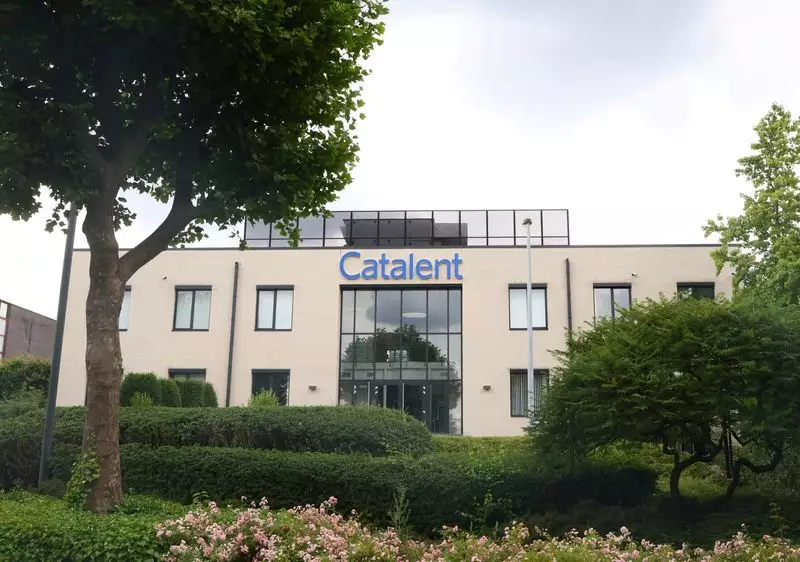The recent announcement of Novo Holdings’ proposed acquisition of Catalent has sparked significant concern among consumer groups and labor unions in the United States. Valued at an astounding $16.5 billion, this merger has been flagged by organizations like the U.S. Public Interest Research Group and the Service Employees International Union (SEIU) for its potential to stifle competition in the fast-evolving markets of weight loss pharmaceuticals and groundbreaking gene therapies. The merger not only raises eyebrows but poses crucial questions regarding the future of innovative medical treatments and the overall healthcare landscape in America.
At the heart of the apprehensions lies the possibility that the merger could severely limit competitive dynamics in drug development, especially concerning GLP-1 medications—an emerging class of treatments for weight management. Novo Holdings, a controlling entity of the well-known Novo Nordisk, claims that the acquisition would enhance the supply chain for their notable drug Wegovy. However, critics argue that increasing market concentration may hinder the entry and success of rival drug manufacturers such as Amgen, Pfizer, and AstraZeneca, all of whom are investigating their own GLP-1 products. In a letter addressed to the Federal Trade Commission (FTC), the involved groups urged regulators to scrutinize this transaction closely, stating that it may compromise the chances of these competitors to access essential manufacturing capacities, which could delay the introduction of new products to the market.
Some may view Novo’s assertion that they will enhance production capabilities as a strategic business move, reinforcing their commitment to serving patient needs and improving health outcomes. That said, the reality is that mergers of this magnitude often lead to fewer options for consumers, significantly diluting the competitive spirit that drives innovation and progress in the pharmaceutical industry.
Beyond concerns related to weight-loss drugs, the merger also poses a significant threat to the rapidly advancing field of gene therapies. With numerous companies, including Sarepta Therapeutics and Novartis, relying on Catalent for the production of their innovative gene therapies, the implications of the merger are concerning. The groups urging the FTC to intervene highlight that Novo Holdings’ control may limit Catalent’s capacity to manufacture these cutting-edge products that promise revolutionary treatment options for various diseases.
David Balto, the antitrust attorney representing the concerned groups, explicitly stated that the implications of this acquisition extend “far beyond existing drugs,” calling for thorough evaluation of impacts on future therapies as well. This is not merely a case of analyzing immediate financial gains but rather understanding the long-term repercussions for public health. As gene therapy markets are still taking shape, growing monopolistic tendencies can stifle growth in what is arguably one of the most promising sectors of modern medicine.
Following the outcry from consumer groups and unions, Novo Holdings issued a statement expressing confidence in the pro-competitive merits of the acquisition. They firmly believe that the merger will create additional benefits for patients and communities served by Catalent. This rhetoric mirrors a common narrative in corporate America, often used to placate concerns surrounding mergers. However, assurances from stakeholders do not alleviate the anxieties expressed by healthcare advocates, particularly when it comes to access and affordability of emerging therapies.
Responses from Catalent reaffirmed the company’s mission to enhance service quality and outcomes, but these claims may not be sufficient to address the broader implications of diminished competition. Observers note that while the companies involved may focus on their growth and profitability, potential adverse outcomes for public health must be illuminated and examined by regulators.
The FDA and FTC play crucial roles in evaluating transactions of this scale. The recent push from consumer advocacy groups emphasizes the necessity for vigilant regulatory oversight in maintaining competitive markets that drive innovation. If the FTC were to approve the merger, they would need to establish strong compliance measures that ensure ongoing product availability and market access for emerging competitors and deter monopolistic behaviors.
Furthermore, with U.S. Senator Elizabeth Warren calling for intense scrutiny of the deal, it’s abundantly clear that public sentiment is also leaning toward protecting consumer interests over corporate expansion. As the regulatory process unfolds, stakeholders will be watching closely to see if the government prioritizes competitive integrity over the allure of corporate synergy.
The proposed acquisition of Catalent by Novo Holdings raises significant concerns that warrant thorough examination. With implications that resonate through competitive drug markets and innovations in gene therapy, this deal could potentially reshape the healthcare landscape. It remains to be seen whether regulators will heed the warnings articulated by consumer groups and restrain this merger, ensuring a competitive market that truly benefits patients rather than solely enriching corporate coffers. Only time will tell if the voices advocating for fairness and competition will resonate within the corridors of power.

